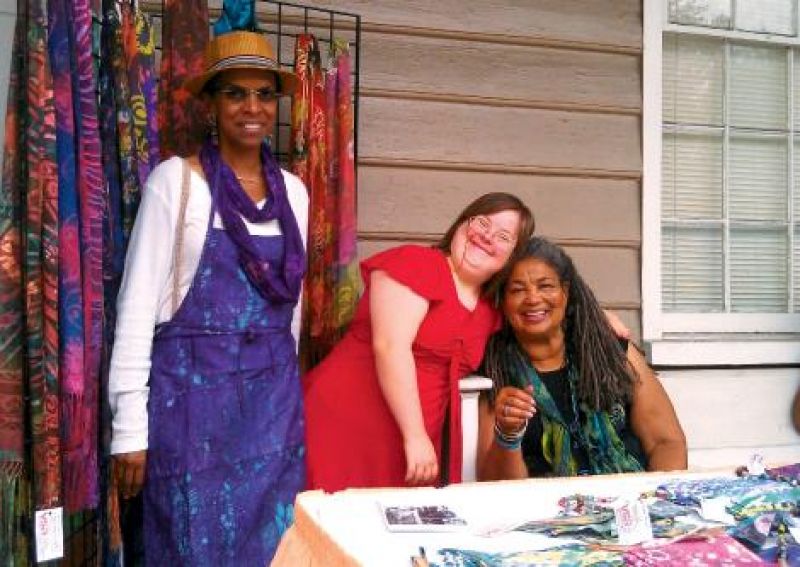
“Art is not what you see,” said French impressionist painter Edgar Degas, “but what you make others see.” Thanks to her work with nonprofit Arts Access South Carolina, formerly VSA (Very Special Arts): The State Organization on Arts and Disability—which identifies artistically gifted children with disabilities and provides them with teachers in a variety of creative disciplines—local Arianne King Comer is using batik art to not only open eyes, but hearts and minds as well.
For some 20 years, the esteemed textile artist has shared her skills with kids. In 2007, she began to teach batik in high school classes that include young people facing physical, mental, and emotional challenges. This year, King Comer has spent 90 minutes of each school day at Stall High, guiding 20 students through the process of batik, in which wax, natural dyes, and stamping tools are used to create designs on cloth.
But her supply kit contains a tool less visible yet equally as penetrating as the deep indigo that is a trademark of her work. It is empathy, driven by her own experience as a child who could not read until the age of 10 in a time when dyslexia was not diagnosed. Her parents gave her crayons and paper, and she learned that “keeping your hands busy creatively gives you a chance to work out your problems without getting deflated.”
Michael Johnson was more than deflated before King Comer came to West Ashley High in 2008. “I could not control my anger, because I was bullied by people who didn’t know I have autism and ADHD. Letting out my emotions on fabric taught me how to not throw a hissy fit in class. It taught me how to focus,” says Johnson, who went on to apprentice with King Comer and show his work in several local exhibits.
The transformative effect of King Comer’s instruction is “stunning,” says Holly Annibale, whose daughter, Michelle, has Down Syndrome, bipolar disorder, and autistic spectrum disorder behaviors. Michelle exhibited behavioral issues at West Ashley High, so Holly was shocked to see her daughter—who previously shoved aside those who came too close—giving King Comer a hug, then sharing a pot of wax with fellow students, who had greeted her warmly.
Now 22, Michelle creates beautiful scarves to sell through MHA Batik, a company her mom started on her behalf. Holly says batik was like magic, bringing out the brilliant hues hidden in her child. “There’s clearly something about Arianne that is unique,” she adds before offering a direct quote from Michelle: “That’s the best lady ever!”
Foster the Arts: Due to funding cuts, Arts Access has had to drastically reduce the number of teachers they place in schools. To learn more about the nonprofit and donate, visit www.vsasc.org.